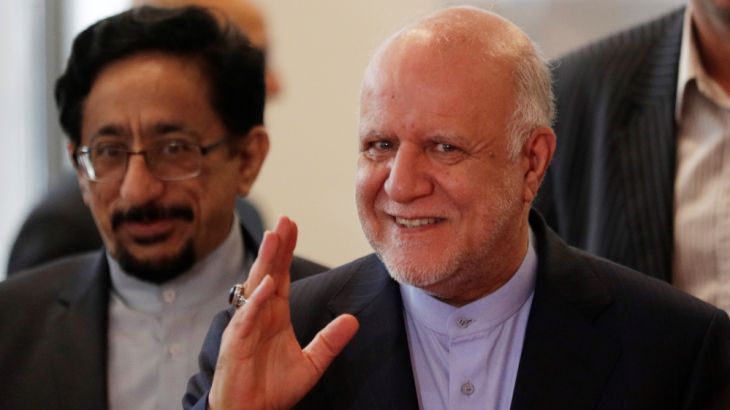OPEC reaches deal to raise oil output
After tense talks, OPEC agrees to increase production after calls from top consumers to help avoid supply shortage.

Leaders from the Organization of the Petroleum Exporting Countries (OPEC) have agreed on a modest increase in oil production from next month.
The agreement on Friday came after a week of tense negotiations amid calls from major consumers to help reduce the price of crude and avoid a supply shortage.
Keep reading
list of 4 itemsWhy are nations racing to buy weapons?
Parallel economy: How Russia is defying the West’s boycott
US House approves aid package worth billions for Ukraine, Israel
Top OPEC producer Saudi Arabia said the move would translate into a nominal output rise of around 1 million barrels per day (bpd), or one percent of global supply.
Iraq, however, said the real increase would be around 770,000 bpd because several countries that had suffered production declines would struggle to reach full quotas.
Iran, OPEC’s third-largest producer, had demanded the organisation reject calls from Trump for an increase in oil supply, arguing that the US has contributed to a recent rise in prices by imposing sanctions on Iran and fellow member Venezuela.
By agreeing to collectively raise output by a million barrels, member countries are simply committing to comply fully with the deal struck in late 2016 – and the final OPEC communique makes no mention of the additional one million target.
“I agreed to have 100 percent of compliance, not more. We accepted this, not more,” Iranian Oil Minister Bijan Namdar Zanganeh said on his way out of the OPEC headquarters.
“They came up with a rather elegant compromise deal. They are going to pump extra oil, but only to fill the short flow that has been created by the market conditions at the moment,” Al Jazeera’s Paul Brennan, reporting from Vienna, said.
“[Due to the lack of clarity], the price of oil has gone up in the past hour, now it’s up to around $74.60 … it has [had] the contrary effect,” Brennan added.
The US has been lobbying the Saudi leadership for months, urging an end to OPEC’s voluntary cut in oil production.
China and India had also urged the Vienna-based organisation to release more supply to prevent an oil deficit that would hurt the global economy.
Strategic pact
OPEC and its allies have since last year been participating in a pact to cut output by 1.8 million bpd.
The measure had helped rebalance the market in the past 18 months.
But unexpected outages in Venezuela, Libya and Angola have effectively brought supply cuts to around 2.8 million bpd in recent months.
The output boost agreed on Friday had been largely priced into the market and was seen as modest.
“It will be enough for now but not enough for the fourth quarter to address a decline in Iranian and Venezuelan exports,” said Gary Ross, head of global oil analytics at S&P Global to Reuters.
“There isn’t a lot of spare capacity in the world. If we lose a million bpd of output from Venezuela and Iran in the fourth quarter, where will all these barrels come from? We are in for higher prices for longer,” he added.